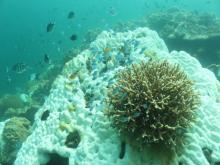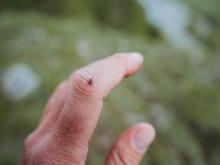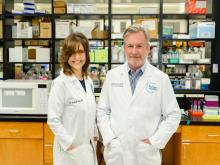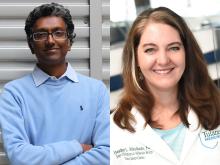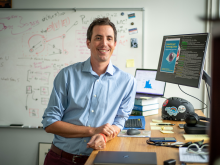Science News
Tulane researcher studying sea temperatures’ impact on Great Barrier Reef
Rising sea temperatures are causing increasing signs of stress and threatening the existence of one of the world's most diverse and valuable…
These healthcare professionals may be secret weapon against hypertension, study finds
The study evaluated 100 hypertension interventions around the world and found that those led by pharmacists and community health workers were most…
Could tragic case be linked to chronic infection from Lyme bacteria?
A new Tulane University case study published in the journal Heliyon explores whether untreated, chronic Lyme disease could have played a role in a…
Tulane awarded $11.2 million NIH grant to pioneer sex-based precision medicine
Tulane University has received a 5-year, $11.2 million grant from the National Institutes of Health to establish a Center of Biological Research…
Can estrogen use improve memory, brain aging? Tulane researcher seeks answers
Jill Daniel, PhD, the Gary P. Dohanich Professor of Brain Science at Tulane University School of Science and Engineering, has been awarded a $2.69…
Tulane to launch science communication program to help tackle global issues
Tulane's Murphy Institute is launching a new graduate-level program that aims to develop future leaders in science policy and communication who…
Can A.I. tell you if you have osteoporosis? Newly developed deep learning model shows promise
Tulane University researchers developed a new deep learning algorithm to predict osteoporosis risk, a tool that could one day allow users to know…
Alumni spotlight: Research, service define graduate’s Tulane experience
A recent Tulane neuroscience graduate continues research at her alma mater with clinical psychologist Michael Hoerger, focusing on cancer and long…
AI professor at Tulane wins CAREER award from National Science Foundation
Nicholas Mattei, associate professor of computer science in the School of Science and Engineering at Tulane, has received a CAREER award from the…
Materials science professor at Tulane wins CAREER award from National Science Foundation
Matthew Montemore has received the CAREER award, a prestigious recognition that the NSF gives to early-career researchers.
